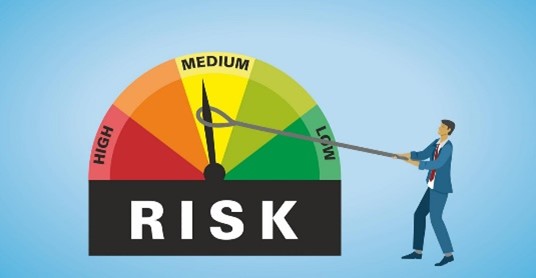“Taking Back Control” – Not Just a Political Slogan!
 With farming facing increasing volatility, what can we do to manage the risks and protect our businesses? Managing risk means we face factors beyond our control – farming is ultimately a series of decisions to mitigate the risks we can’t control and manage better the things we can control. The best businesses have strategies in place to manage risk, allowing them to focus their energy on the factors they can control.
With farming facing increasing volatility, what can we do to manage the risks and protect our businesses? Managing risk means we face factors beyond our control – farming is ultimately a series of decisions to mitigate the risks we can’t control and manage better the things we can control. The best businesses have strategies in place to manage risk, allowing them to focus their energy on the factors they can control.
What is your attitude to risk?
Which are you? -
- Avoider – cautious, avoiding risk. May miss opportunities for profit.
- Calculator – will take some risks but not without information and analysis.
- Adventurer – enjoys the challenge and excitement of taking some risks, but with reasonable stakes i.e., not risking the whole business.
- Daredevil – no consideration of the consequences. Failure is frequent.
When undertaking this exercise with our discussion groups, most farmers fell into the first two categories.
The purpose of this is to identify how your attitude to risk may affect your business, i.e.:
- Am I missing opportunities due to being over-cautious?
- Do I have all the information needed to inform my decision? (Ask your independent advisor)
- Is the challenge and excitement worthwhile for the risks involved?
- Am I risking my financial survival?
What are the risks?
To help manage risk, we can identify our risks in five categories:
- Production risk – weather, disease, pests etc.
- Marketing risk – output prices
- Legal risks – rules & regulations
- Human risks – accidents, illness, death, divorce
- Financial risks – input prices, interest rates, ability to borrow money
List the risks your business faces in each category.
“Take back control”
Nothing Brexit related – having a written and structured plan with tools in place to manage the risks to your business can give you peace of mind and enable you to get on with the bit you enjoy – making daily decisions on the factors you can control. Strategies for each category might include:
- Production risk – extra land or contracted forage production to ensure adequate stocks. Change soil and pasture management to increase weather resilience.
- Marketing risk – direct marketing of produce. Selling forwards at agreed prices.
- Legal risks – plan necessary investment well in advance. Ensure your policies and procedures are watertight (Health and Safety, employment contracts etc).
- Human risk – can the business and farm continue if a key individual is injured or sick? Invest in staff training and ensure that work/life balance reduces your risk of divorce! Is there a succession plan in place?
- Financial risk – join a buying group to benefit from buying power and reduce time spent on purchasing decisions. Move your farming system to one less reliant on purchased inputs. Take advice on restructuring debt.
A structured risk management plan will help you to cope with the volatility that seems set to stay – and give you the freedom to do what you do best.
To help you improve your management of risk in your business, contact Tom
on 07496 760242 or e-mail tommalleson@fcgagric.com

Recent Articles
- Do You Know the Benefits of a Health and Heat Detection System?
- Have you Ordered Your Silage Inoculant?
- Growing More Grass With Less Nitrogen, Where Do I start?
- A Real Recognition of The Importance of Food Security or Simply A Reconciling of DEFRA Budgets?
- Silage Sheet Prices Available!
- Are Your Cows at Risk of Grass Staggers?
- Feed Late Afternoon and Calve in Daylight Hours!
- Q Fever
- Aerating Your Soil Without A Machine? – Gerard Finnan
- Why Are You Not doing a Soil Management Plan?

